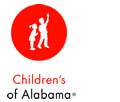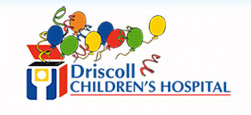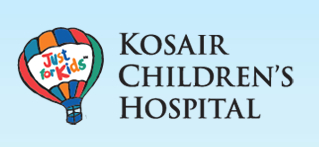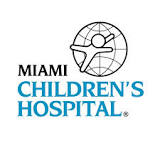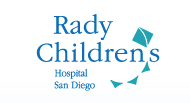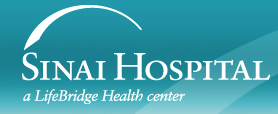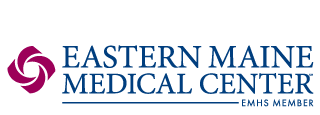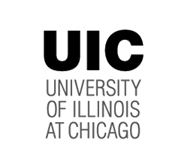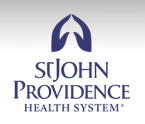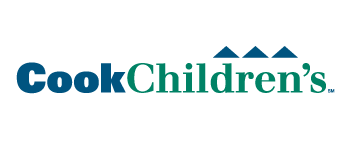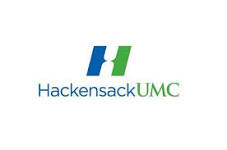Comparing Two Different Myeloablation Therapies in Treating Young Patients Who Are Undergoing a Stem Cell Transplant for High-Risk Neuroblastoma
| Status: | Active, not recruiting |
|---|---|
| Conditions: | Brain Cancer |
| Therapuetic Areas: | Oncology |
| Healthy: | No |
| Age Range: | Any - 30 |
| Updated: | 1/14/2017 |
| Start Date: | November 2007 |
Phase III Randomized Trial of Single vs. Tandem Myeloablative Consolidation Therapy for High-Risk Neuroblastoma
This randomized phase III trial compares two different high-dose myeloablative chemotherapy
regimens followed by autologous stem cell transplant as consolidation treatment of younger
patients with high-risk neuroblastoma. All patients receive the same 6 cycles of initial
multi-agent chemotherapy induction regimen. Peripheral blood stem cells are collected after
the 2nd cycle of chemotherapy. Drugs used in chemotherapy work in different ways to stop the
growth of tumor cells, either by killing the cells or by stopping them from dividing. Giving
combination chemotherapy before surgery may make the tumor smaller and reduce the amount of
normal tissue that needs to be removed. Patients underwent resection of their primary tumor
mass after 5 cycles of chemotherapy. Those patients without progressive disease at
completion of induction therapy who has sufficient stem cells collected and had adequate
organ function were eligible to proceed to consolidation therapy. Those patients who met
consolidation eligibility were randomized to either a single myeloablative regimen or 2
myeloablative regimens delivered in tandem followed by re-infusion of autologous stem cells.
Patients received radiation therapy after recovery from the assigned myeloablative therapy.
It is not yet known which regimen of high-dose chemotherapy is more effective for patients
with high-risk neuroblastoma undergoing a peripheral blood stem cell transplant.
regimens followed by autologous stem cell transplant as consolidation treatment of younger
patients with high-risk neuroblastoma. All patients receive the same 6 cycles of initial
multi-agent chemotherapy induction regimen. Peripheral blood stem cells are collected after
the 2nd cycle of chemotherapy. Drugs used in chemotherapy work in different ways to stop the
growth of tumor cells, either by killing the cells or by stopping them from dividing. Giving
combination chemotherapy before surgery may make the tumor smaller and reduce the amount of
normal tissue that needs to be removed. Patients underwent resection of their primary tumor
mass after 5 cycles of chemotherapy. Those patients without progressive disease at
completion of induction therapy who has sufficient stem cells collected and had adequate
organ function were eligible to proceed to consolidation therapy. Those patients who met
consolidation eligibility were randomized to either a single myeloablative regimen or 2
myeloablative regimens delivered in tandem followed by re-infusion of autologous stem cells.
Patients received radiation therapy after recovery from the assigned myeloablative therapy.
It is not yet known which regimen of high-dose chemotherapy is more effective for patients
with high-risk neuroblastoma undergoing a peripheral blood stem cell transplant.
PRIMARY OBJECTIVES:
I. To improve the 3-year event-free survival (EFS) rate of high-risk neuroblastoma patients
through treatment with a tandem consolidation of thiotepa/cyclophosphamide followed by
carboplatin/etoposide/melphalan (CEM) as compared to single CEM consolidation.
II. To improve the rate of end-induction complete response and very good partial response,
compared to historical controls, by use of a topotecan-containing induction regimen.
III. To improve the 3-year local control rate, compared to historical controls, by
increasing the local dose of radiation to the residual primary tumor for patients with less
than a gross total resection.
SECONDARY OBJECTIVES:
I. To evaluate the pharmacogenetic relationship of cyclophosphamide metabolizing enzymes
(i.e., cytochrome p 450 2B6 [CYP2B6], CYP2C9, and glutathione S-transferase alpha 1 [GSTA1]
genotypes) with toxicity and response following dose-intensive cyclophosphamide and
topotecan induction chemotherapy.
II. To determine if resection completeness is predictive of local control rate or EFS rate
in patients with high-risk neuroblastoma.
III. To prospectively describe the complications related to efforts at local control (i.e.,
surgery and radiotherapy) in patients with high-risk neuroblastoma.
IV. To describe the neurologic outcome of patients with paraspinal primary neuroblastoma
tumors.
V. To determine the variability of isotretinoin pharmacokinetics (PKs) and relationship to
pharmacogenomic parameters.
VI. To determine if isotretinoin PK levels are predictive of the EFS rate or associated with
systemic toxicity following isotretinoin.
VII. To determine if pharmacogenomic variations are predictive of the EFS rate or associated
with systemic toxicity following isotretinoin.
VIII. To evaluate total topotecan PKs and correlate with patient specific data for use in an
ongoing topotecan population PK analysis.
IX. To evaluate the presence and function of T cells capable of recognizing neuroblastoma by
assessing the following; if T cells recognizing the neuroblastoma antigen, survivin,
circulate at diagnosis; if these T cells can be expanded using autologous antigen presenting
cells (APCs); if these T cells will kill neuroblastoma cells as detected in functional
assays; and if the presence and activity of anti-neuroblastoma immunity is decreased by stem
cell transplantation.
X. To characterize the recovery of T-cell numbers after myeloablative consolidation and
hematopoietic stem cell transplantation (HSCT) and to assess the impact of tandem
myeloablative consolidation on T-cell recovery.
XI. To characterize minimal residual disease burden using reverse transcriptase-polymerase
chain reaction (RT-PCR) evaluation of a panel of neuroblastoma specific transcripts in
patient bone marrow and peripheral blood following induction chemotherapy and after single
versus tandem myeloablative chemotherapy and to evaluate impact on EFS.
XII. To evaluate the EFS and overall survival of patients nonrandomly assigned to treatment
with single myeloablative transplant (Arm A).
OUTLINE:
INDUCTION CHEMOTHERAPY:
COURSES 1 AND 2: Patients receive cyclophosphamide IV over 30 minutes and topotecan
hydrochloride IV over 30 minutes on days 1-5 and filgrastim (G-CSF) subcutaneously (SC) or
IV beginning on day 6 and continuing until blood counts recover. Treatment repeats every 21
days for 2 courses. Patients undergo peripheral blood stem cell (PBSC) mobilization and
harvest after course 2.
COURSES 3 AND 5: Patients receive cisplatin IV over 1 hour on days 1-4, etoposide IV over 1
hour on days 1-3, and G-CSF SC or IV beginning on day 5 and continuing until blood counts
recover. Treatment repeats every 21 days for 2 courses. Patients undergo surgical resection
of soft tissue disease after course 5 (or after course 6 if medically necessary).
COURSES 4 AND 6: Patients receive cyclophosphamide IV over 6 hours on days 1-2, doxorubicin
hydrochloride IV over 24 hours on days 1-3, vincristine IV on days 1-3, and G-CSF SC or IV
beginning on day 5 and continuing until blood counts recover. Treatment repeats every 21
days for 2 courses.
At end induction, those patients with adequate organ function and peripheral blood stem cell
collection are eligible to undergo randomized assignment to Consolidation therapy.
Randomization is stratified by initial stage of disease, MYCN status, and response to
induction chemotherapy (complete response/very good partial response vs partial response vs
mixed response/no response). Patients are randomized to 1 of 2 arms (single myeloablative
regimen with autologous stem cell support, arm A or tandem (2) myeloablative regimens each
followed by autologous stem cell support, arm B). Patients 12-18 months old (i.e., 365-547
days) with stage IV, MYCN nonamplified tumor with unfavorable histopathology or diploid DNA
content or with indeterminant histology or ploidy AND patients who are greater than 547 days
of age with stage III, MYCN nonamplified tumor AND unfavorable histopathology or
indeterminant histology will be nonrandomly assigned to Arm A.
Consolidation chemotherapy was recommended to begin no later than 8 weeks after the start of
induction course 6.
CONSOLIDATION THERAPY:
ARM A (single myeloablative consolidation): Patients receive melphalan IV over 15-30 minutes
on days -7 to -5, etoposide IV over 24 hours and carboplatin IV over 24 hours on days -7 to
-4, and G-CSF SC or IV beginning on day 0 and continuing until blood counts recover.
Patients undergo autologous peripheral blood stem cell transplant (PBSCT) on day 0.
ARM B (tandem myeloablative consolidation): Patients receive thiotepa IV over 2 hours on
days -7 to -5, cyclophosphamide IV over 1 hour on days -5 to -2, and G-CSF SC or IV
beginning on day 0 and continuing until blood counts recover. Following clinical recovery
from initial myeloablative therapy, patients also receive melphalan, etoposide, and
carboplatin as in Arm A but at reduced dosages. Patients undergo autologous PBSCT on day 0.
RADIOTHERAPY: Patients undergo external beam radiation therapy (EBRT) to primary site of
disease as well as to MIBG-avid sites seen at pre-transplantation (i.e., end- induction)
evaluation no sooner than day 28 and recommended by 42 days post-transplant. An additional
boost of radiotherapy is administered to residual tumor at primary site.
MAINTENANCE THERAPY: Patients are encouraged to enroll onto Children's Oncology Group
(COG)-ANBL0032 following assessment of tumor response after completion of the consolidation
phase and radiotherapy. Beginning on day 60 post-transplantation patients receive oral
isotretinoin twice daily on days 1-14. Treatment repeats every 28 days for up to 6 months in
the absence of disease progression or unacceptable toxicity.
Patients undergo blood and tissue sample collection periodically for the following analyses;
correlation between peak serum concentration level of cyclophosphamide metabolites and the
existence of polymorphisms in genes involved in cyclophosphamide metabolism, event-free
survival, and toxicity rates; pharmacogenomics for uridine diphosphate (UDP)
glucuronosyltransferase 1 family, polypeptide A1 (UGT1A1), UGT2B7, CYP2C8 and CYP3A7
alleles; topotecan systemic clearance; survivin-specific cytotoxic T-lymphocytes (CTLs)
detected using peptide/major histocompatibility complex (MHC) tetramers in human leukocyte
antigen (HLA)-A2+ patients; interferon (IFN)-gamma production in enzyme-linked immunospot
(ELISPOT) assays to APCs loaded with tumor ribonucleic acid (RNA), survivin RNA, or control
RNA; response of APC-stimulated CTL response to neuroblastoma cells; rate of T cell
recovery; and proportion of patients with neuroblastoma detected in bone marrow and
peripheral blood using RT-PCR and immunohistochemistry (IHC).
After completion of study treatment, patients are followed up periodically for 5 years and
then annually for 5 years.
I. To improve the 3-year event-free survival (EFS) rate of high-risk neuroblastoma patients
through treatment with a tandem consolidation of thiotepa/cyclophosphamide followed by
carboplatin/etoposide/melphalan (CEM) as compared to single CEM consolidation.
II. To improve the rate of end-induction complete response and very good partial response,
compared to historical controls, by use of a topotecan-containing induction regimen.
III. To improve the 3-year local control rate, compared to historical controls, by
increasing the local dose of radiation to the residual primary tumor for patients with less
than a gross total resection.
SECONDARY OBJECTIVES:
I. To evaluate the pharmacogenetic relationship of cyclophosphamide metabolizing enzymes
(i.e., cytochrome p 450 2B6 [CYP2B6], CYP2C9, and glutathione S-transferase alpha 1 [GSTA1]
genotypes) with toxicity and response following dose-intensive cyclophosphamide and
topotecan induction chemotherapy.
II. To determine if resection completeness is predictive of local control rate or EFS rate
in patients with high-risk neuroblastoma.
III. To prospectively describe the complications related to efforts at local control (i.e.,
surgery and radiotherapy) in patients with high-risk neuroblastoma.
IV. To describe the neurologic outcome of patients with paraspinal primary neuroblastoma
tumors.
V. To determine the variability of isotretinoin pharmacokinetics (PKs) and relationship to
pharmacogenomic parameters.
VI. To determine if isotretinoin PK levels are predictive of the EFS rate or associated with
systemic toxicity following isotretinoin.
VII. To determine if pharmacogenomic variations are predictive of the EFS rate or associated
with systemic toxicity following isotretinoin.
VIII. To evaluate total topotecan PKs and correlate with patient specific data for use in an
ongoing topotecan population PK analysis.
IX. To evaluate the presence and function of T cells capable of recognizing neuroblastoma by
assessing the following; if T cells recognizing the neuroblastoma antigen, survivin,
circulate at diagnosis; if these T cells can be expanded using autologous antigen presenting
cells (APCs); if these T cells will kill neuroblastoma cells as detected in functional
assays; and if the presence and activity of anti-neuroblastoma immunity is decreased by stem
cell transplantation.
X. To characterize the recovery of T-cell numbers after myeloablative consolidation and
hematopoietic stem cell transplantation (HSCT) and to assess the impact of tandem
myeloablative consolidation on T-cell recovery.
XI. To characterize minimal residual disease burden using reverse transcriptase-polymerase
chain reaction (RT-PCR) evaluation of a panel of neuroblastoma specific transcripts in
patient bone marrow and peripheral blood following induction chemotherapy and after single
versus tandem myeloablative chemotherapy and to evaluate impact on EFS.
XII. To evaluate the EFS and overall survival of patients nonrandomly assigned to treatment
with single myeloablative transplant (Arm A).
OUTLINE:
INDUCTION CHEMOTHERAPY:
COURSES 1 AND 2: Patients receive cyclophosphamide IV over 30 minutes and topotecan
hydrochloride IV over 30 minutes on days 1-5 and filgrastim (G-CSF) subcutaneously (SC) or
IV beginning on day 6 and continuing until blood counts recover. Treatment repeats every 21
days for 2 courses. Patients undergo peripheral blood stem cell (PBSC) mobilization and
harvest after course 2.
COURSES 3 AND 5: Patients receive cisplatin IV over 1 hour on days 1-4, etoposide IV over 1
hour on days 1-3, and G-CSF SC or IV beginning on day 5 and continuing until blood counts
recover. Treatment repeats every 21 days for 2 courses. Patients undergo surgical resection
of soft tissue disease after course 5 (or after course 6 if medically necessary).
COURSES 4 AND 6: Patients receive cyclophosphamide IV over 6 hours on days 1-2, doxorubicin
hydrochloride IV over 24 hours on days 1-3, vincristine IV on days 1-3, and G-CSF SC or IV
beginning on day 5 and continuing until blood counts recover. Treatment repeats every 21
days for 2 courses.
At end induction, those patients with adequate organ function and peripheral blood stem cell
collection are eligible to undergo randomized assignment to Consolidation therapy.
Randomization is stratified by initial stage of disease, MYCN status, and response to
induction chemotherapy (complete response/very good partial response vs partial response vs
mixed response/no response). Patients are randomized to 1 of 2 arms (single myeloablative
regimen with autologous stem cell support, arm A or tandem (2) myeloablative regimens each
followed by autologous stem cell support, arm B). Patients 12-18 months old (i.e., 365-547
days) with stage IV, MYCN nonamplified tumor with unfavorable histopathology or diploid DNA
content or with indeterminant histology or ploidy AND patients who are greater than 547 days
of age with stage III, MYCN nonamplified tumor AND unfavorable histopathology or
indeterminant histology will be nonrandomly assigned to Arm A.
Consolidation chemotherapy was recommended to begin no later than 8 weeks after the start of
induction course 6.
CONSOLIDATION THERAPY:
ARM A (single myeloablative consolidation): Patients receive melphalan IV over 15-30 minutes
on days -7 to -5, etoposide IV over 24 hours and carboplatin IV over 24 hours on days -7 to
-4, and G-CSF SC or IV beginning on day 0 and continuing until blood counts recover.
Patients undergo autologous peripheral blood stem cell transplant (PBSCT) on day 0.
ARM B (tandem myeloablative consolidation): Patients receive thiotepa IV over 2 hours on
days -7 to -5, cyclophosphamide IV over 1 hour on days -5 to -2, and G-CSF SC or IV
beginning on day 0 and continuing until blood counts recover. Following clinical recovery
from initial myeloablative therapy, patients also receive melphalan, etoposide, and
carboplatin as in Arm A but at reduced dosages. Patients undergo autologous PBSCT on day 0.
RADIOTHERAPY: Patients undergo external beam radiation therapy (EBRT) to primary site of
disease as well as to MIBG-avid sites seen at pre-transplantation (i.e., end- induction)
evaluation no sooner than day 28 and recommended by 42 days post-transplant. An additional
boost of radiotherapy is administered to residual tumor at primary site.
MAINTENANCE THERAPY: Patients are encouraged to enroll onto Children's Oncology Group
(COG)-ANBL0032 following assessment of tumor response after completion of the consolidation
phase and radiotherapy. Beginning on day 60 post-transplantation patients receive oral
isotretinoin twice daily on days 1-14. Treatment repeats every 28 days for up to 6 months in
the absence of disease progression or unacceptable toxicity.
Patients undergo blood and tissue sample collection periodically for the following analyses;
correlation between peak serum concentration level of cyclophosphamide metabolites and the
existence of polymorphisms in genes involved in cyclophosphamide metabolism, event-free
survival, and toxicity rates; pharmacogenomics for uridine diphosphate (UDP)
glucuronosyltransferase 1 family, polypeptide A1 (UGT1A1), UGT2B7, CYP2C8 and CYP3A7
alleles; topotecan systemic clearance; survivin-specific cytotoxic T-lymphocytes (CTLs)
detected using peptide/major histocompatibility complex (MHC) tetramers in human leukocyte
antigen (HLA)-A2+ patients; interferon (IFN)-gamma production in enzyme-linked immunospot
(ELISPOT) assays to APCs loaded with tumor ribonucleic acid (RNA), survivin RNA, or control
RNA; response of APC-stimulated CTL response to neuroblastoma cells; rate of T cell
recovery; and proportion of patients with neuroblastoma detected in bone marrow and
peripheral blood using RT-PCR and immunohistochemistry (IHC).
After completion of study treatment, patients are followed up periodically for 5 years and
then annually for 5 years.
Inclusion Criteria:
- Diagnosis of neuroblastoma or ganglioneuroblastoma by histology or as evidenced by
the presence of clumps of tumor cells in bone marrow and elevated catecholamine
metabolites in urine meeting any of the following criteria:
- Patients with newly diagnosed neuroblastoma with International Neuroblastoma
Staging System (INSS) stage 4 disease are eligible with the following:
- MYCN amplification (i.e., greater than four-fold increase in MYCN signals
as compared to reference signals), regardless of age or additional biologic
features
- Age > 18 months (i.e., > 547 days) regardless of biologic features
- Age 12-18 months (i.e., 365-547 days) with none of the following three
favorable biologic features (i.e., non-amplified MYCN, favorable pathology,
and deoxyribonucleic acid [DNA] index > 1)
- Patients with newly diagnosed neuroblastoma with INSS stage 3 are eligible with
the following:
- MYCN amplification (i.e., greater than four-fold increase in MYCN signals
as compared to reference signals), regardless of age or additional biologic
features
- Age > 18 months (i.e., > 547 days) with unfavorable pathology, regardless
of MYCN status
- Patients with newly diagnosed INSS stage 2a or 2b with MYCN amplification (i.e.,
greater than four-fold increase in MYCN signals as compared to reference
signals), regardless of age or additional biologic features
- Patients with newly diagnosed INSS stage 4s with MYCN amplification (i.e.,
greater than four-fold increase in MYCN signals as compared to reference
signals), regardless of additional biologic features
- Patients >= 365 days initially diagnosed with INSS stage 1, 2, or 4S and who
progressed to a stage 4 without interval chemotherapy
- Must have been enrolled on COG-ANBL00B1
- Creatinine clearance or radioisotope glomerular filtration rate ≥ 70mL/min OR serum
creatinine based on age/gender as follows:
- 1 month to < 6 months: 0.4 mg/dL
- 6 months to < 1 year: 0.5 mg/dL
- 1 to < 2 years: 0.6 mg/dL
- 2 to < 6 years: 0.8 mg/dL
- 6 to < 10 years: 1 mg/dL
- 10 to < 13 years: 1.2 mg/dL
- 10 to < 16 years: 1.5 mg/dL (male), 1.4 mg/dL (female)
- >= 16 years: 1.7 mg/dL (male), 1.4 mg/dL (female)
- Total bilirubin ≤ 1.5 times upper limit of normal (ULN) for age
- Aspartate aminotransferase (AST) or alanine aminotransferase (ALT) < 10 times ULN for
age
- Not pregnant or nursing
- Negative pregnancy test
- Shortening fraction >= 27% by echocardiogram (ECHO) OR left ventricular ejection
fraction (LVEF) >= 50% by radionuclide angiogram
- No known contraindication (e.g., size, weight or physical condition) to peripheral
blood stem cell collection
- No prior systemic therapy except for localized emergency radiation to sites of
life-threatening or function-threatening disease
- No more than one course of chemotherapy per low- or intermediate-risk neuroblastoma
therapy prior to determination of MYCN amplification and histology
We found this trial at
164
sites
University of Missouri-Ellis Fischel Ellis Fischel Cancer Center's team of physician specialists and other trained...
Click here to add this to my saved trials
1201 Camino de Salud Northeast
Albuquerque, New Mexico 87131
Albuquerque, New Mexico 87131
(505) 272-4946

University of New Mexico Cancer Center It’s been 40 years since the New Mexico State...
Click here to add this to my saved trials
4900 Mueller Boulevard
Austin, Texas 78723
Austin, Texas 78723
(512) 324-0000
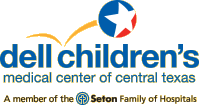
Dell Children's Medical Center of Central Texas Welcome to Dell Children
Click here to add this to my saved trials
2545 Schoenersville Rd
Bethlehem, Pennsylvania 18017
Bethlehem, Pennsylvania 18017
(484) 884-2200

Lehigh Valley Hospital - Muhlenberg At Lehigh Valley Health Network, we continually go the extra...
Click here to add this to my saved trials
Children's Hospital of Alabama Children
Click here to add this to my saved trials
University of Alabama at Birmingham The University of Alabama at Birmingham (UAB) traces its roots...
Click here to add this to my saved trials
Roswell Park Cancer Institute Welcome to Roswell Park Cancer Institute (RPCI), America's first cancer center...
Click here to add this to my saved trials
1 South Prospect Street
Burlington, Vermont 05401
Burlington, Vermont 05401
802-656-8990
Click here to add this to my saved trials
Click here to add this to my saved trials
3333 Burnet Avenue # Mlc3008
Cincinnati, Ohio 45229
Cincinnati, Ohio 45229
1-513-636-4200

Cincinnati Children's Hospital Medical Center Patients and families from across the region and around the...
Click here to add this to my saved trials
Rainbow Babies and Children's Hospital UH Rainbow Babies & Children’s Hospital is a 244-bed, full-service...
Click here to add this to my saved trials
Nationwide Children's Hospital At Nationwide Children’s, we are creating the future of pediatric health care....
Click here to add this to my saved trials
Driscoll Children's Hospital Driscoll Children's Hospital was built because Clara Driscoll's will requested that a...
Click here to add this to my saved trials
Blank Children's Hospital Blank Children's Hospital is completely dedicated to meeting the unique health care...
Click here to add this to my saved trials
City of Hope Comprehensive Cancer Center City of Hope is a leading research and treatment...
Click here to add this to my saved trials
Inova Fairfax Hospital Inova Fairfax Hospital, Inova's flagship hospital, is an 833-bed, nationally recognized regional...
Click here to add this to my saved trials
Hurley Medical Center From its founding in 1908, Hurley Medical Center has devoted itself to...
Click here to add this to my saved trials
Lee Memorial Health System Our origins can be traced to the Fall of 1916 when...
Click here to add this to my saved trials
University of Florida The University of Florida (UF) is a major, public, comprehensive, land-grant, research...
Click here to add this to my saved trials
100 Michigan Street Northeast
Grand Rapids, Michigan 49503
Grand Rapids, Michigan 49503
616.391.9000
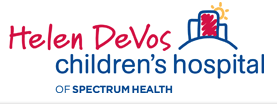
Helen DeVos Children's Hospital at Spectrum Health Helen DeVos Children's Hospital, located in Grand Rapids,...
Click here to add this to my saved trials
Connecticut Children's Medical Center Connecticut Children’s Medical Center is a nationally recognized, 187-bed not-for-profit children’s...
Click here to add this to my saved trials
University of Mississippi Medical Center The University of Mississippi Medical Center, located in Jackson, is...
Click here to add this to my saved trials
Bronson Methodist Hospital Our healthcare system serves patients and families throughout southwest Michigan and northern...
Click here to add this to my saved trials
Children's Mercy Hospital Children's Mercy Hospitals and Clinics continues redefining pediatric medicine throughout the Midwest...
Click here to add this to my saved trials
529 West Markham Street
Little Rock, Arkansas 72205
Little Rock, Arkansas 72205
(501) 686-7000
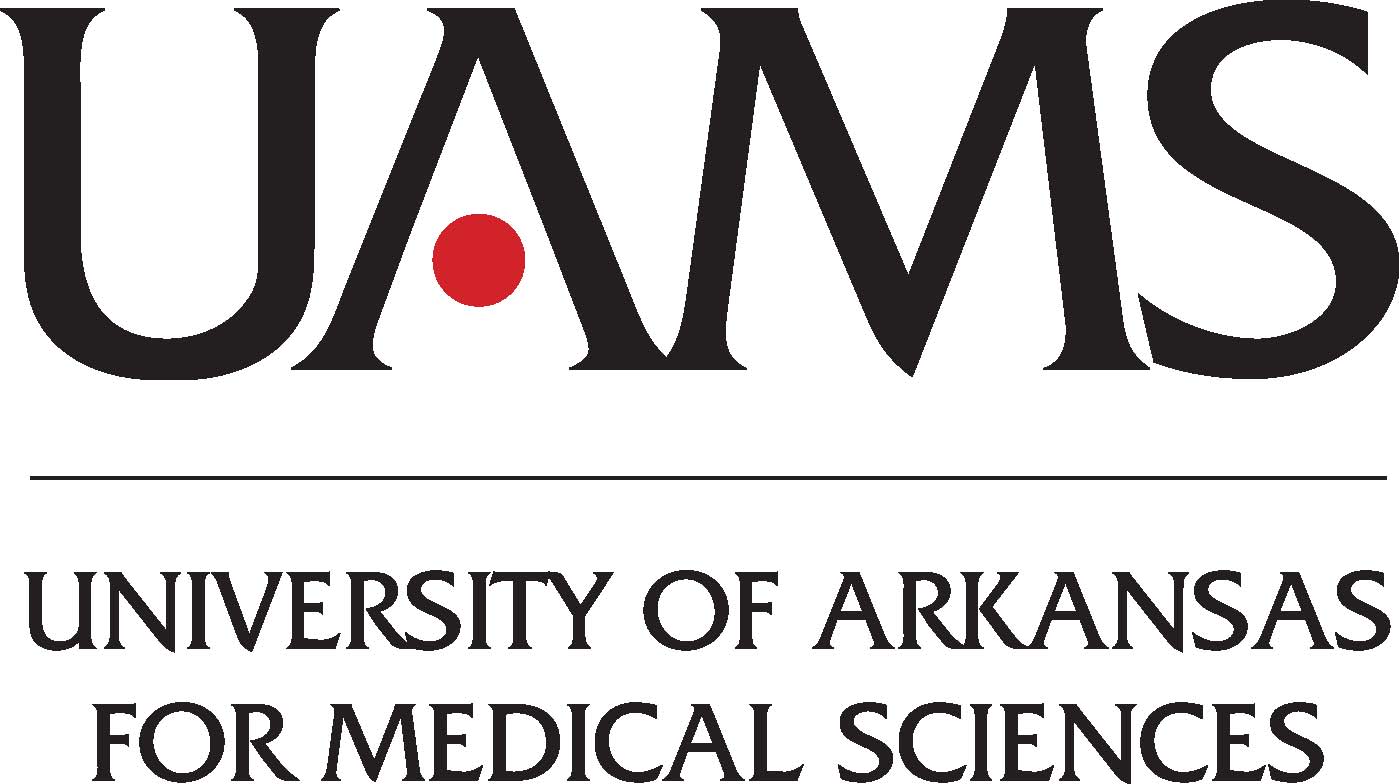
University of Arkansas for Medical Sciences The University of Arkansas for Medical Sciences (UAMS) in...
Click here to add this to my saved trials
Childrens Hospital Los Angeles Children's Hospital Los Angeles is a 501(c)(3) nonprofit hospital for pediatric...
Click here to add this to my saved trials
Kosair Children's Hospital For more than a century, Kosair Children's Hospital and its predecessor hospitals...
Click here to add this to my saved trials
Covenant Children's Hospital Every child is different. And when they're sick or injured, they deserve...
Click here to add this to my saved trials
9300 Valley Children's Pl
Madera, California 93720
Madera, California 93720
(559) 353-3000

Children's Hospital Central California The Children's Hospital Central California is a not-for-profit, state-of-the-art children’s hospital...
Click here to add this to my saved trials
Miami Children's Hospital Welcome to Miami Children
Click here to add this to my saved trials
Vanderbilt-Ingram Cancer Center The Vanderbilt-Ingram Cancer Center, located in Nashville, Tenn., brings together the clinical...
Click here to add this to my saved trials
747 52nd St
Oakland, California 94609
Oakland, California 94609
(510) 428-3000

Children's Hospital and Research Center Oakland For nearly 100 years, Children's Hospital & Research Center...
Click here to add this to my saved trials
Children's Hospital of Orange County For more than 45 years, CHOC Children’s has been steadfastly...
Click here to add this to my saved trials
1717 South Orange Avenue # 100
Orlando, Florida 32806
Orlando, Florida 32806
(407) 650-7000

Nemours Children's Clinic - Orlando Located near downtown Orlando, Nemours Children’s Clinic, Orlando is a...
Click here to add this to my saved trials
Nemours Children's Clinic - Pensacola Nemours Children’s Clinic, Pensacola serves children and families in northwest...
Click here to add this to my saved trials
Saint Jude Midwest Affiliate The Jim and Trudy Maloof St. Jude Midwest Affiliate Clinic was...
Click here to add this to my saved trials
Children's Hospital of Philadelphia Since its start in 1855 as the nation's first hospital devoted...
Click here to add this to my saved trials
4401 Penn Avenue
Pittsburgh, Pennsylvania 15224
Pittsburgh, Pennsylvania 15224
412-692-5325

Children's Hospital of Pittsburgh of UPMC UPMC is one of the leading nonprofit health systems...
Click here to add this to my saved trials
3181 Southwest Sam Jackson Park Road
Portland, Oregon 97239
Portland, Oregon 97239
503 494-8311

Oregon Health and Science University In 1887, the inaugural class of the University of Oregon...
Click here to add this to my saved trials
Naval Medical Center - Portsmouth Naval Medical Center Portsmouth, Virginia has proudly served the military...
Click here to add this to my saved trials
401 College Street
Richmond, Virginia 23298
Richmond, Virginia 23298
(804) 828-0450
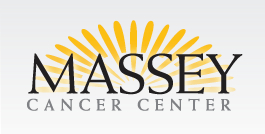
Virginia Commonwealth University Massey Cancer Center Founded in 1974, VCU Massey Cancer Center is a...
Click here to add this to my saved trials
University of Rochester The University of Rochester is one of the country's top-tier research universities....
Click here to add this to my saved trials
7700 Floyd Curl Dr
San Antonio, Texas 78229
San Antonio, Texas 78229
(210) 575-7000

Methodist Children's Hospital of South Texas Methodist Children
Click here to add this to my saved trials
4502 Medical Drive
San Antonio, Texas 78284
San Antonio, Texas 78284
(210) 567-7000
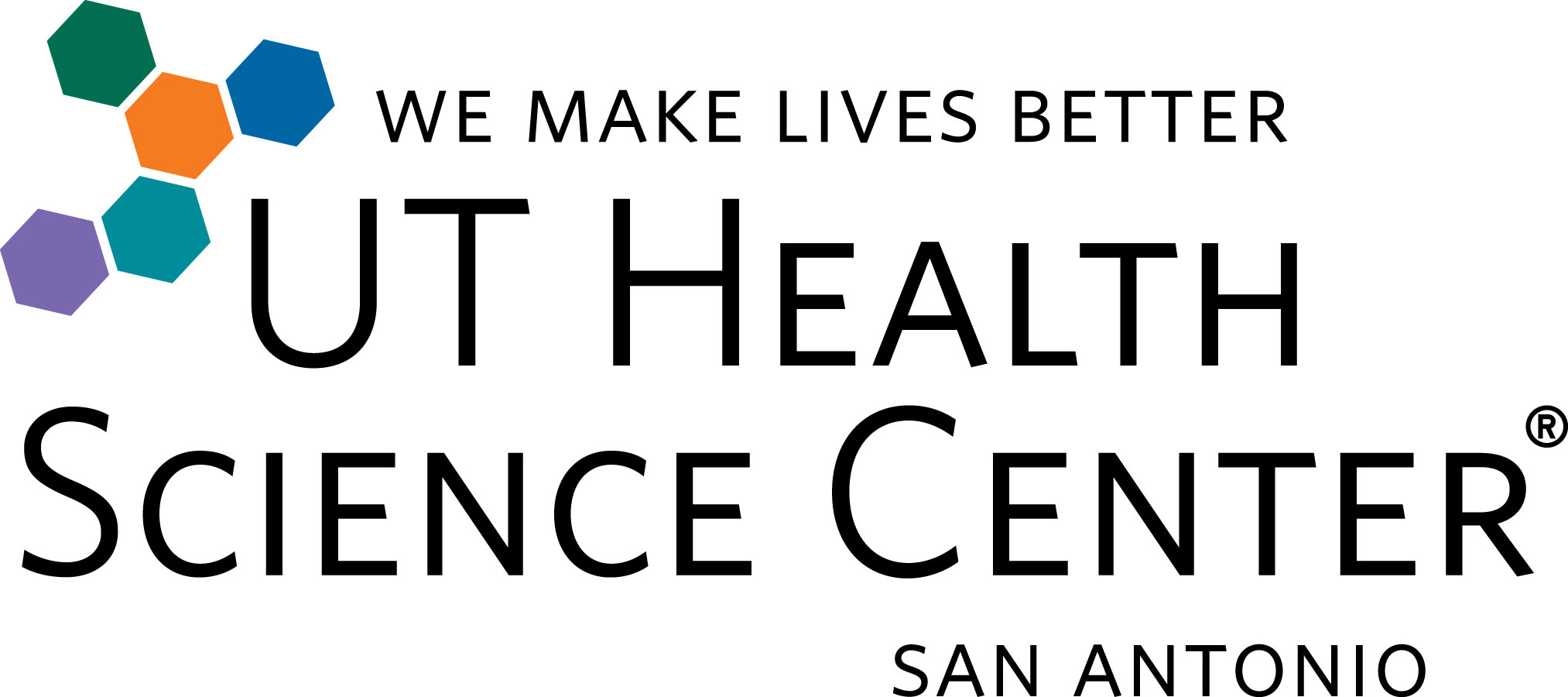
University of Texas Health Science Center at San Antonio The University of Texas Health Science...
Click here to add this to my saved trials
Rady Children's Hospital - San Diego Rady Children's Hospital-San Diego is the region’s pediatric medical...
Click here to add this to my saved trials
New York Medical College The College was founded in 1860 by a group of New...
Click here to add this to my saved trials
Alfred I. duPont Hospital for Children Nemours began more than 70 years ago with the...
Click here to add this to my saved trials
Click here to add this to my saved trials
University of New Mexico Founded in 1889 as New Mexico’s flagship institution, the University of...
Click here to add this to my saved trials
C S Mott Children's Hospital Behind the doors of C.S. Mott Children's Hospital there exist...
Click here to add this to my saved trials
Click here to add this to my saved trials
Click here to add this to my saved trials
Click here to add this to my saved trials
Children's Hospital Colorado At Children's Hospital Colorado, we see more, treat more and heal more...
Click here to add this to my saved trials
Click here to add this to my saved trials
22 South Greene Street
Baltimore, Maryland 21201
Baltimore, Maryland 21201
410-328-7904

University of Maryland Greenebaum Cancer Center The University of Maryland Marlene and Stewart Greenebaum Cancer...
Click here to add this to my saved trials
Sinai Hospital of Baltimore Sinai Hospital of Baltimore provides a broad array of high-quality, cost-effective...
Click here to add this to my saved trials
Eastern Maine Medical Center Located in Bangor, Eastern Maine Medical Center (EMMC) serves communities throughout...
Click here to add this to my saved trials
8901 Rockville Pike
Bethesda, Maryland 20889
Bethesda, Maryland 20889
(301) 295-4000
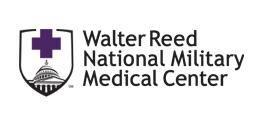
Walter Reed National Military Medical Center The Walter Reed National Military Medical Center is one...
Click here to add this to my saved trials
Click here to add this to my saved trials
Massachusetts General Hospital Cancer Center An integral part of one of the world
Click here to add this to my saved trials
Dana-Farber Cancer Institute Since it’s founding in 1947, Dana-Farber has been committed to providing adults...
Click here to add this to my saved trials
Brooklyn Hospital Center Welcome to The Brooklyn Hospital Center, dedicated to Keeping Brooklyn healthy and...
Click here to add this to my saved trials
Univ of North Carolina Carolina’s vibrant people and programs attest to the University’s long-standing place...
Click here to add this to my saved trials
171 Ashley Avenue
Charleston, South Carolina 29425
Charleston, South Carolina 29425
843-792-1414

Medical University of South Carolina The Medical University of South Carolina (MUSC) has grown from...
Click here to add this to my saved trials
Click here to add this to my saved trials
Click here to add this to my saved trials
University of Virginia The University of Virginia is distinctive among institutions of higher education. Founded...
Click here to add this to my saved trials
Click here to add this to my saved trials
Click here to add this to my saved trials
Univ of Illinois A major research university in the heart of one of the world's...
Click here to add this to my saved trials
5841 S Maryland Ave
Chicago, Illinois 60637
Chicago, Illinois 60637
1-773-702-6180

University of Chicago Comprehensive Cancer Center The University of Chicago Comprehensive Cancer Center (UCCCC) is...
Click here to add this to my saved trials
Cleveland Clinic Foundation The Cleveland Clinic (formally known as The Cleveland Clinic Foundation) is a...
Click here to add this to my saved trials
Palmetto Health Richland Palmetto Health Richland, originally founded in 1892 as Columbia Hospital, has a...
Click here to add this to my saved trials
University of Texas Southwestern Medical Center UT Southwestern is an academic medical center, world-renowned for...
Click here to add this to my saved trials
Geisinger Medical Center Since 1915, Geisinger Medical Center has been known as the region’s resource...
Click here to add this to my saved trials
Click here to add this to my saved trials
Denver, Colorado 80218
Click here to add this to my saved trials
4160 John R St #2122
Detroit, Michigan 48201
Detroit, Michigan 48201
(313) 833-1785
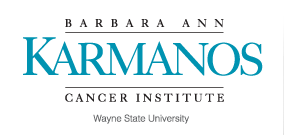
Wayne State University/Karmanos Cancer Institute Karmanos is based in southeast Michigan, in midtown Detroit, and...
Click here to add this to my saved trials
Saint John Hospital and Medical Center Founded in 1952, St. John Hospital and Medical Center...
Click here to add this to my saved trials
4760 Sunset Blvd
Downey, California 90027
Downey, California 90027
(323) 783-6151

Southern California Permanente Medical Group We
Click here to add this to my saved trials
Click here to add this to my saved trials
Duke Univ Med Ctr As a world-class academic and health care system, Duke Medicine strives...
Click here to add this to my saved trials
Click here to add this to my saved trials
Sanford Medical Center-Fargo Sanford Medical Center Fargo is a major medical center that provides comprehensive,...
Click here to add this to my saved trials
Broward Health Medical Center Broward Health, providing service for more than 75 years, is a...
Click here to add this to my saved trials
Click here to add this to my saved trials
Cook Children's Medical Center Cook Children's Health Care System is a not-for-profit, nationally recognized pediatric...
Click here to add this to my saved trials
Spectrum Health at Butterworth Campus Butterworth Hospital is one of four facilities that make up...
Click here to add this to my saved trials
Click here to add this to my saved trials
900 West Faris Rd.
Greenville, South Carolina 29605
Greenville, South Carolina 29605
(864)455-8898
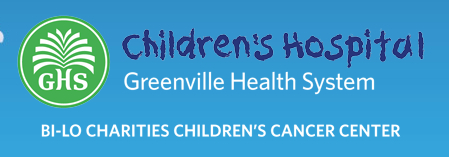
BI-LO Charities Children's Cancer Center The BI-LO Charities Children
Click here to add this to my saved trials
Click here to add this to my saved trials
Hackensack University Medical Center Hackensack University Medical Center, part of the Hackensack University Health Network,...
Click here to add this to my saved trials
Penn State Hershey Children's Hospital Penn State Milton S. Hershey Medical Center, Penn State College...
Click here to add this to my saved trials
1005 Joe DiMaggio Drive
Hollywood, Florida 33021
Hollywood, Florida 33021
954-265-JDCH (5324)

Memorial Healthcare System - Joe DiMaggio Children's Hospital Since its inception in 1953, Memorial Healthcare...
Click here to add this to my saved trials
Riley Hospital for Children Riley Hospital for Children at IU Health is a place of...
Click here to add this to my saved trials
535 Barnhill Dr
Indianapolis, Indiana 46202
Indianapolis, Indiana 46202
(888) 600-4822

Indiana University Melvin and Bren Simon Cancer Center At the IU Simon Cancer Center, more...
Click here to add this to my saved trials
2001 W 86th St
Indianapolis, Indiana 46260
Indianapolis, Indiana 46260
(317) 338-2345

Saint Vincent Hospital and Health Services At St.Vincent Indianapolis, everything we do begins with a...
Click here to add this to my saved trials
University of Iowa Hospitals and Clinics University of Iowa Hospitals and Clinics—recognized as one of...
Click here to add this to my saved trials
Click here to add this to my saved trials
Click here to add this to my saved trials

